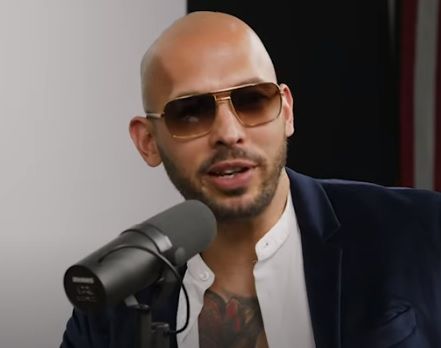Rising popularity of misogynistic content poses harmful ideas

September 26, 2022
Dear readers, please indulge me in considering the following questions: Do you refer to women as “females” and other less family-friendly terms? Do you believe that they belong in the home, cannot drive and should be men’s property? Are you an ex-boxer whose only undeveloped muscle seems to be the one inside your cranium?
If you answered yes to all of those questions, congratulations. You are social media’s newest exercise in sensational misogyny. You are also a menace to society in a non-ironic way, but that’s a topic for later in the article.
Below is the saga of Andrew Tate, the self-proclaimed alpha male who considers himself a modern-day pharaoh, but really is just the modern-day owner of a pyramid scheme.
Tate, an internet personality who rose to fame because of his far-right views — he even admitted himself that he was “absolutely sexist” and “absolutely a misogynist” on a podcast appearance — has billions of engagement across TikTok, Instagram, FaceBook and YouTube. Despite being banned from these platforms in August 2022, his content continues to remain relevant. For example, I counted more than 50 active fan accounts dedicated to posting his content on Instagram alone.
To talk about Andrew Tate is like going down a checklist of disgusting behavior, with each new item getting worse and worse. Past his garden-variety misogyny that permeates all his content, Tate’s house in Romania was raided on suspicion of human trafficking in April 2022. Though the U.S. State Department refused to comment because of privacy issues, Tate did not have such reserves. “Officer…I think we can all agree that b—— love to lie,” he wrote on Instagram of the raid. In addition to this allegation, there are countless videos of him inciting physical and threatened violence, including a video of him hitting a woman with a belt that got him fired from the reality show “Big Brother” in 2016. The scariest thing of all, however, is how these actions are received by his followers. Rather than feeling disgust or disdain, they revere him for it. Tate calls himself a “self-help guru,” so it raises the question of exactly what type of help he is providing to his fans.
The values Tate advocates for, however, are popular outside of his content. He shares his audience with other creators in what is collectively called the manosphere, a group of digital forums rife with sexist beliefs. Though there are, of course, issues regarding men that need to be addressed and advocated for, this particular term refers to a group of radicalists who take it entirely too far.
Ironically, this extremity is what makes Tate and his contemporaries so popular. Because there will always be people who hold views different than the norm — in this case, views against equality and basic human decency — Tateisms appeal to the hyper specific audience that feel silenced by the general public.
For Andrew Tate, this apparently underrepresented population is young men between the ages of 13 to 25, who make up the lion’s share of his fanbase. It’s also no coincidence that male teenagers make up the age group with one of the highest recorded internet usage, with 81 percent engaging with Instagram and 73 percent in TikTok at least once per month. This presents ample opportunity for disillusioned youth to discover Tate’s content, especially because these are the platforms on which his videos are most widely shared.
With a confident demeanor and enviable lifestyle, it’s not difficult to see why people might be drawn in by Andrew Tate at first glance. After all, it’s a rich, fit, successful guy explaining how YOU can be just like him. Once people begin to realize the true extent of his politics, however, it might already be too late.
Before Tate was banned from TikTok, the Guardian conducted an experiment to test its algorithm in August 2022. Reporters created a fake account for an 18-year-old and interacted with the For You page normally, until a video about men’s mental health popped up. Even without commenting on the video or searching for content like it, the account was recommended videos of Andrew Tate and similar creators. After watching two Tate videos, the account’s entire feed consisted of his reels. Needless to say, once someone is exposed to Tate’s content, it’s easy to fall down the rabbit hole of radical ideology, especially when the descent is made easier by social media algorithms.
Tate’s effect on classrooms around the world, according to teachers, is already apparent. For example, a private school in Sydney, Australia sent out a warning about Tate’s videos in a newsletter after linking the uptick of sexual abuse towards female students to his content.
Tate is not the only creator who caters towards a male audience. He’s probably not even the only Bugatti-flexing, COVID-denying of the bunch — but he is the only one being celebrated for acting out how he’d attack a woman if she accused him of cheating. While his content in itself is revolting, what is worse is the average age of his audience. The next generation of men are being taught by Tate that it’s acceptable to hit women and blame victims of sexual assault.
I cannot think of a good way to end this article because I do not know how to condemn Andrew Tate more. The things he has done that should’ve landed him in jail has instead given him a multi-billion dollar career. He latches onto people’s insecurities to make women the enemy, enriching himself by stepping on the necks of an entire gender. How glad I am that the technological marvels of the Digital Age are being used by Andrew Tate to radicalize young men right in their own bedrooms.










